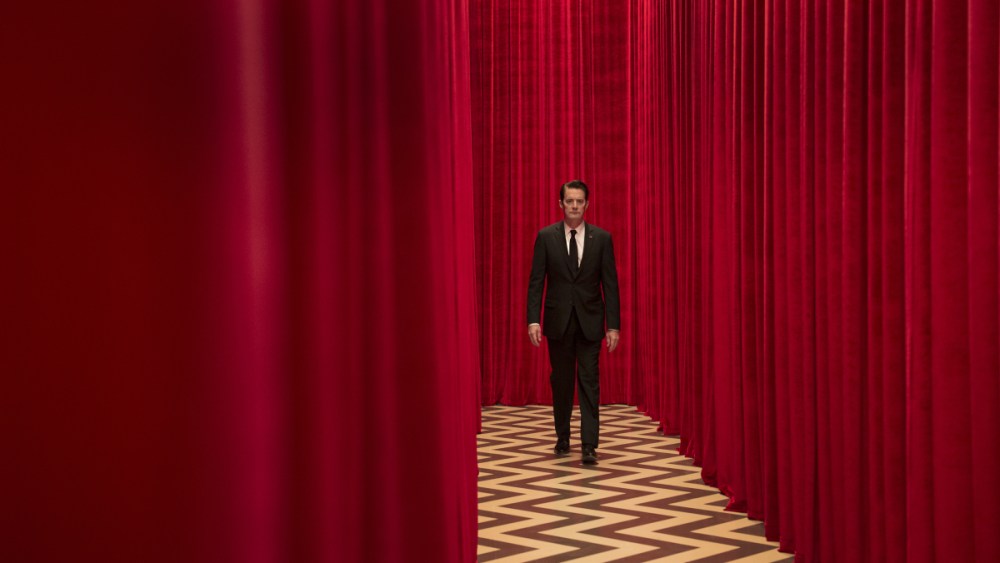In 1993, David Lynch quietly traveled to Italy to pay his final respects to his Rimini-born inspiration, Federico Fellini.
Three decades later, the Rimini-based Italian Global Series Festival (IGSF) will honor the late American master with louder fanfare, presenting a tribute called “The Light of David Lynch” that includes a screening of the “Twin Peaks” pilot in a 600-seat open-air venue just 100 meters from the theater where Fellini first discovered cinema.
“Lynch and Fellini even shared the same birthday, January 20,” explains IGSF artistic director Marco Spagnoli. “Being in Fellini’s city, it felt essential for our inaugural edition to pay tribute to that profound cinematic, ethical, and spiritual connection between these two great artists.”
The tribute, organized by Carlo Chatrian, director of Italy’s National Film Museum and former chief of the Berlin and Locarno film festivals, and Dennis Lim, head of the New York Film Festival and Lynch biographer, centers on a panel featuring the two curators alongside cinematographers Frederick Elmes (“Eraserhead,” “Blue Velvet”) and Peter Deming (“Mulholland Drive,” “Twin Peaks: The Return”). Together, they will explore Lynch’s visual language — focusing especially on the one iconic project neither cinematographer worked on.
“When we proposed the idea, both were thrilled, not just as collaborators but as fans,” says Chatrian. “They wanted to discuss ‘Twin Peaks’ as viewers!”
For that matter, so did Chatrian, Lim, and Spagnoli — all of whom came of age just as the series first aired.
“For our generation, ‘Twin Peaks’ marked a seismic shift,” Chatrian reflects. “It changed me as a viewer and as someone who thinks deeply about narrative. It taught me that storytelling doesn’t have to be linear or easily decoded. Lynch opened up a whole new space where ambiguity wasn’t just tolerated — it was embraced. That has had a lasting effect, not just on how I watch, but on how I understand the possibilities of the screen. Part of our mission is to convey just how disruptive — and exhilarating — that breakthrough truly was.”
For that reason, the show would have always been the curator’s natural point of entry even without this year’s mournful context.
“If we’re talking about series, we have to start there,” says Chatrian. “Lynch’s work challenges narrative conventions and blurs boundaries between film and TV, resolution and ambiguity. Great art breaks definitions rather than follows them. And all of this reflects very contemporary themes like our relationship to virtual reality, our growing isolation, and the fractured way we perceive the world.”
That belief in television’s cultural potential runs through the festival’s wider programming, including its “Extraordinary – Women in Series” showcase, which highlights titles that creatively and politically reframe women’s stories.
“Series are not just cultural products,” says festival organizer Chiara Sbarigia. “They actively shape culture. By focusing on women, we want to celebrate untold stories and create a snowball effect that leads to real change. After more than 30 years in the audiovisual industry, I know there’s still work to do.”
Spagnoli echoes that sentiment, calling the lineup a “mosaic and harmonious journey” across three themes: rewriting history (“Maria – The Unknown Callas,” “Marie Antoinette”), subverting archetypes (“La Rebelle”), and reexamining power (“Vikings”).
“This curatorial process reaffirmed my belief that series are cultural laboratories,” he says. “They’re where gender representation evolves, where ‘pop’ productions like ‘Miss Austen’ can surprise with radical depth, and where auteur voices can still resonate widely.”
Read the full article here


